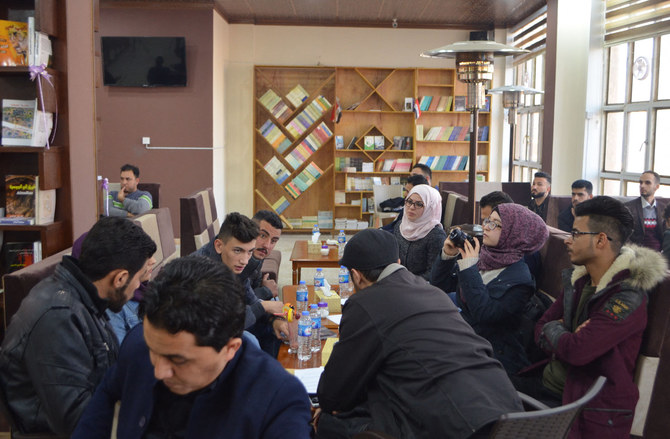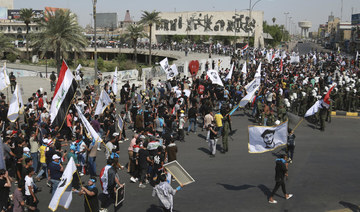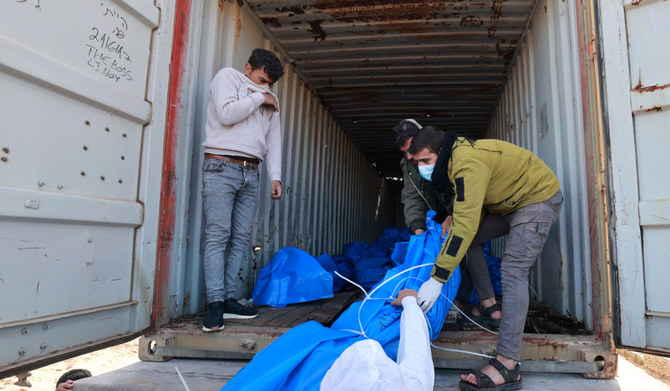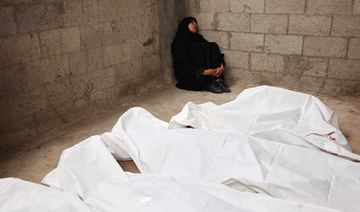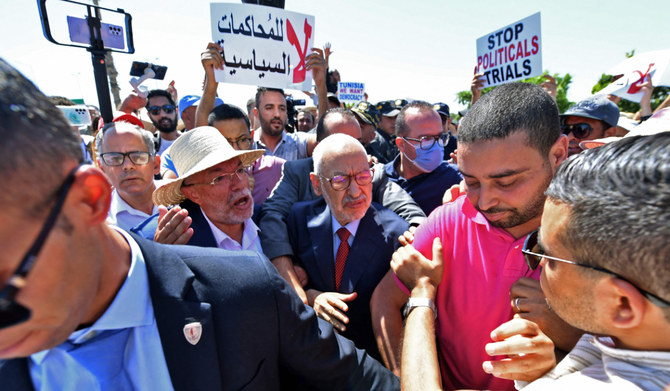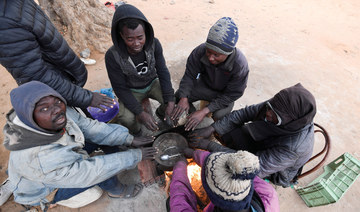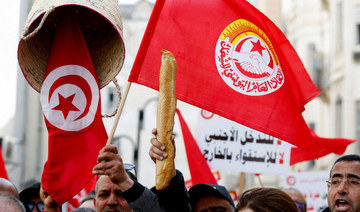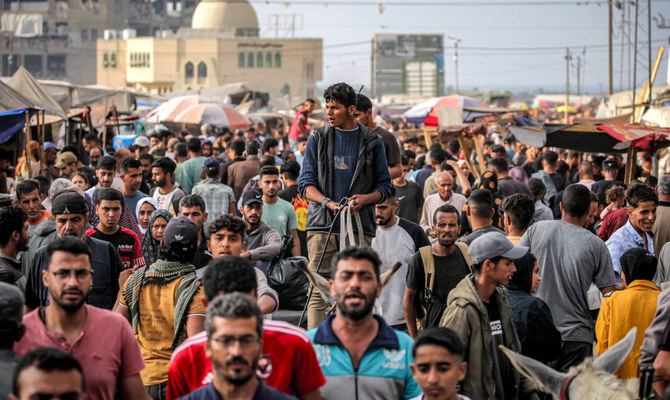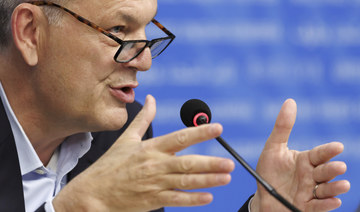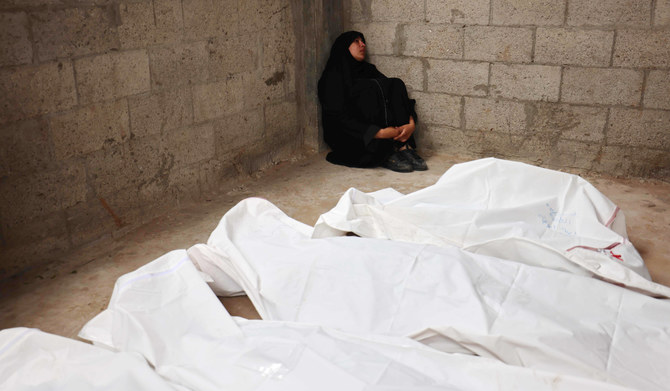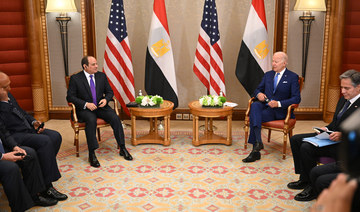MOSUL, Iraq/BOGOTA, Colombia: Taking a seat at the top table in Mosul’s Book Forum cafe one evening in September, political blogger Saad Amer introduced his two guest speakers, both independent candidates running in Iraq’s Oct. 10 parliamentary elections.
This was the fifth such event organized by the Khutwa Club, a debating society that meets regularly at the northern city’s popular cafe — its foremost cultural and literary venue.
Since Mosul was retaken from Daesh extremists in 2017, the cafe has become a popular and widely celebrated hub for young activists, academics, journalists and students to share ideas.
In a country where politics is dominated by armed groups and where critics are often murdered with impunity, the Khutwa Club’s success in motivating a mostly apathetic youth is a remarkable feat in itself.
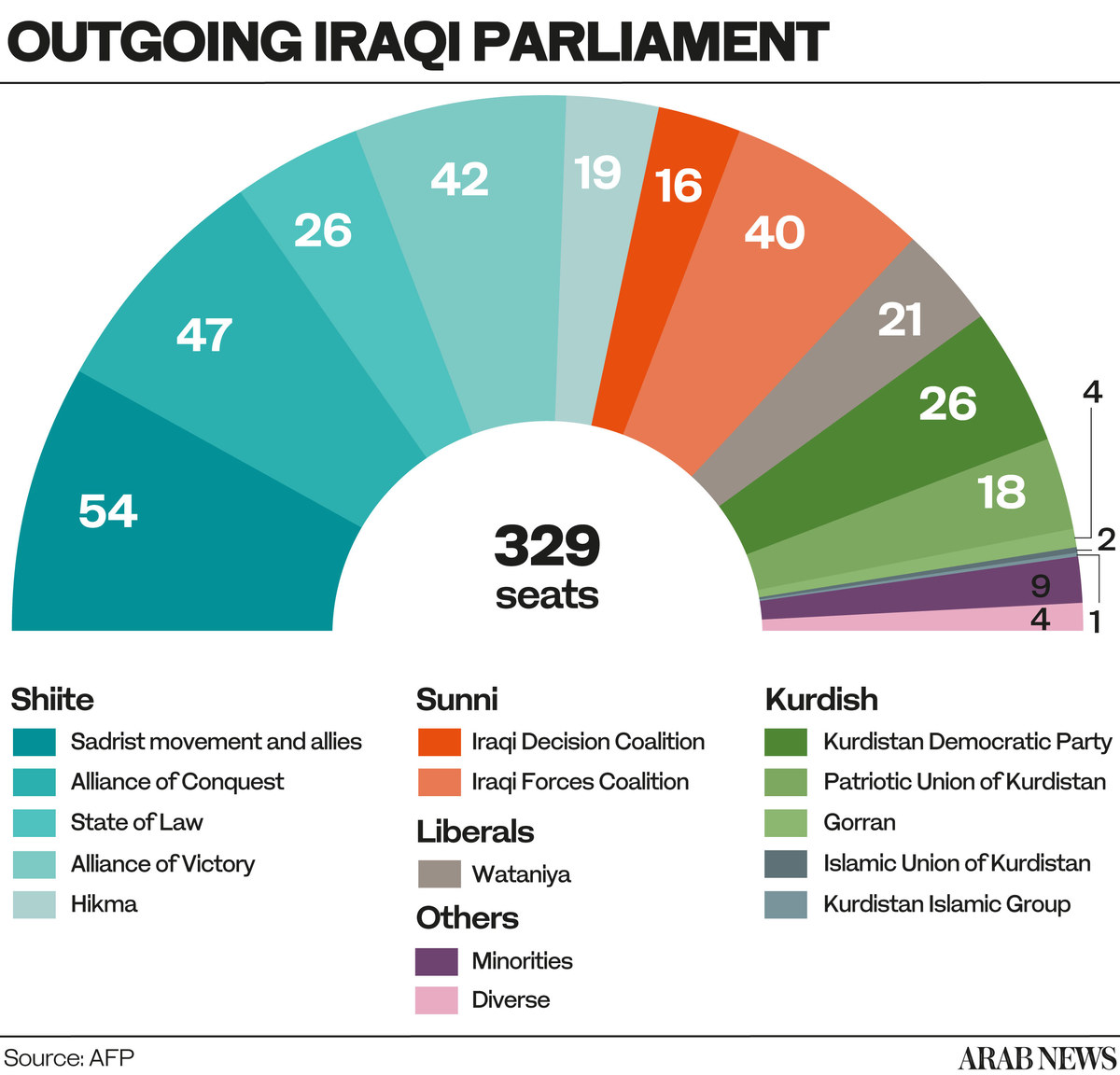
“There is a huge gap between citizens and the political system in Iraq,” Harith Yaseen Abdulqader, the Book Forum’s co-founder, told Arab News during a Khutwa Club event.
“Our goal is to help people look in-depth at the Iraqi political system and how to spread awareness among the people so that they can choose the best candidate for them, to understand the electoral program of the candidates, and understand the gaps in their programs.”
Political education is at the core of the Khutwa Club’s mission. In 2003, after decades of Baathist rule, the US and other Western powers installed a democratic system in Baghdad modelled on their own time-honored institutions.
The tenets of Western-style democracy were alien to many Iraqis, who for centuries had conducted their affairs along tribal and religious lines. Foreign powers, armed groups and corrupt individuals soon took advantage of the situation, fashioning a system that was democratic in name only.

The Khutwa Club offers independent candidates a platform to discuss their programs ahead of Iraq’s parliamentary election. (Meethak Al-Khatib for Arab News)
“The goal of this club is to educate citizens about common political terms, aspects and ideas,” Abdulqader said. “Perhaps a citizen doesn’t know what liberalism is, what civic politics is, or what political Islam is, or the difference between the ruling parties and the Islamist parties.”
There is certainly a thirst for such ideas among Iraq’s swelling ranks of jobless educated youth. Fed up with the country’s ruling elite, young Iraqis marched in their hundreds of thousands in cities across the country in October 2019, demanding the overthrow of the post-2003 order.
ALSO READ: Iraq’s young voters ponder how to effect meaningful change
Although the protests secured the resignation of then-prime minister Adel Abdul-Mahdi, the movement soon fizzled out with the onset of the global pandemic and under savage attack by pro-government militias.
Crucially, without a defined political leadership heading the movement, Iraq’s young protesters were unable to translate their energy and idealism into an electoral force capable of making their demands a reality.
By offering discussions on political literacy and participation, the Khutwa Club and others like it might be the very platforms to make that transition possible.
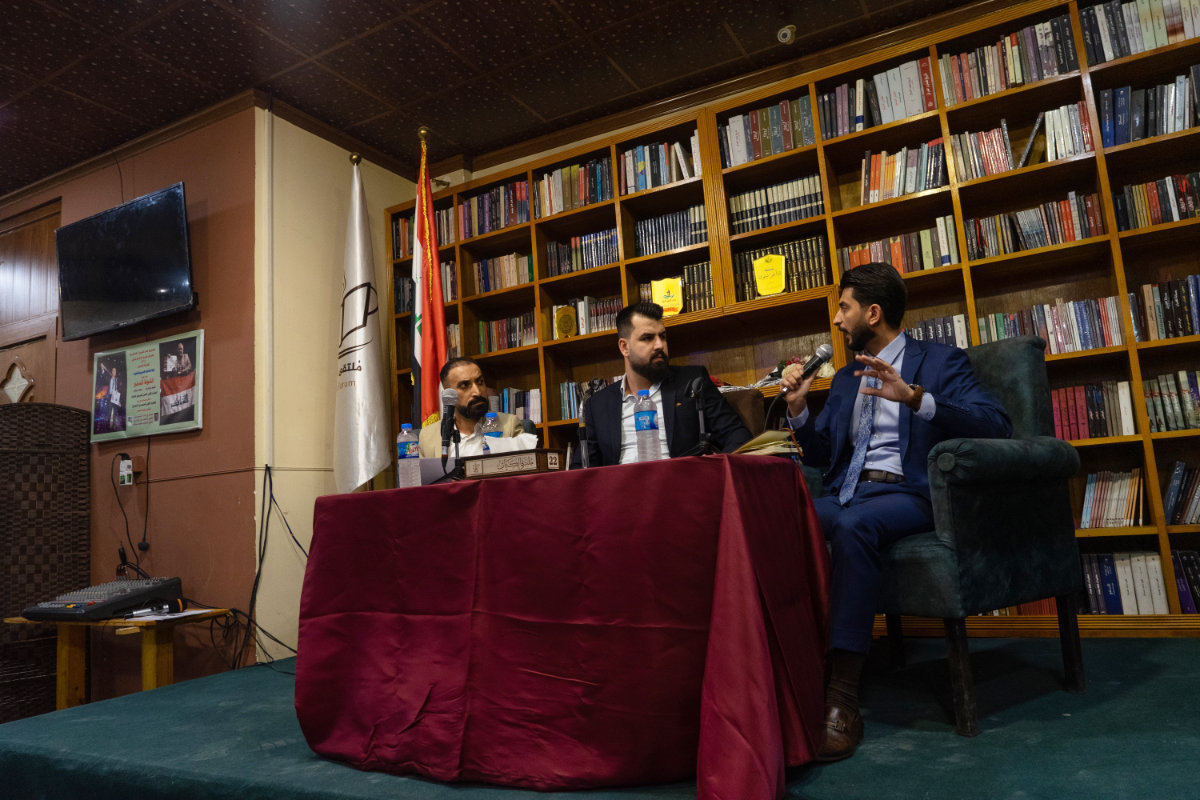
Hosted by the Book Forum cafe, the Khutwa Club offers young Iraqis lessons on political literacy and participation. (Meethak Al-Khatib for Arab News)
“Maybe what we do here will open horizons for people who want to run for election in the future,” said Abdulqader.
“We encourage young people to engage in politics. We are trying to create new young political faces with a large support base and with an understanding of the Iraqi political process. Maybe we can be the supporters for these young people if they decided to run for election.
“For more than 17 years we have seen the same political faces. They did not offer anything new. They still made the same fake promises. We need to focus on new faces, especially the young ones. There is a difference between the mentality of a 70-year-old politician and a 35-year-old.”
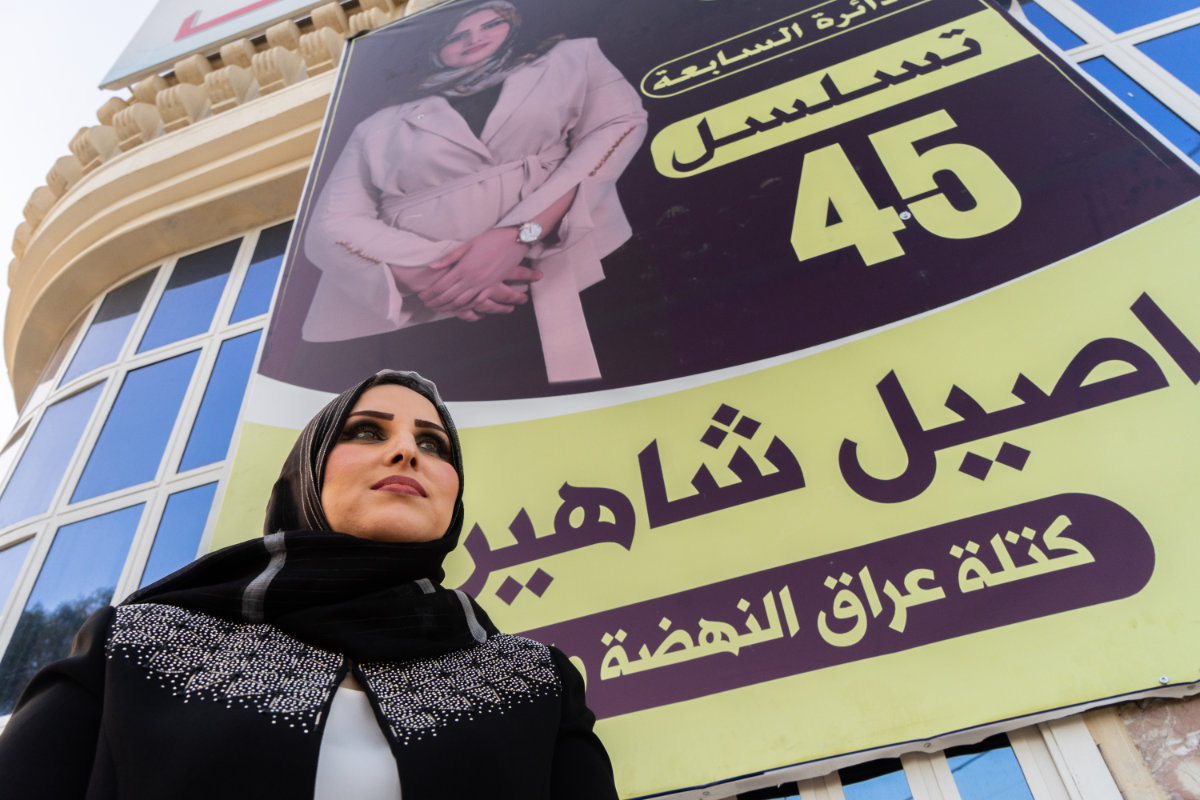
Election hopeful Asil Al-Agha says independent candidates are unlikely to succeed without a party machine behind them. (Meethak Al-Khatib for Arab News)
Seated in the audience is Obadiah Muhammad, a 22-year-old law student and one of the club’s regular attendees. He is grateful for the opportunity to hear from local candidates running on an independent ticket.
“Mosul suffers from the dominance of big political parties,” Muhammad told Arab News. “I wanted to come today to support independent candidates, to hear what they have to say, to see if I agree with them or not.”
The Khutwa Club is unique in providing a platform for candidates who would otherwise be drowned out by the dominant parties.
“The club offers an environment to exchange opinions and challenges its guests,” Muhammad said. “We did not have such a place before in Mosul and I see it as something extraordinary.”
Mosul, situated in Iraq’s Sunni-majority northwest, was not always so tolerant of political expression. Between 2014 and 2017, when the city was the capital of Daesh’s self-styled caliphate, free speech and democratic participation were brutally suppressed.
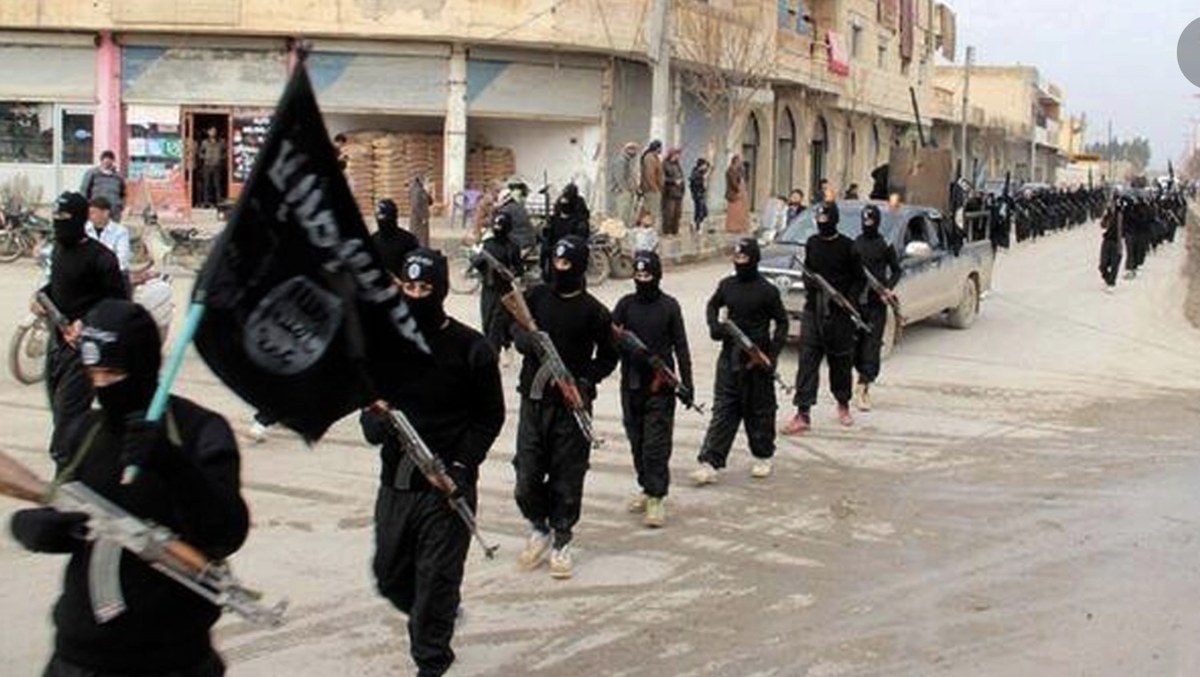
Daesh militants brutally suppressed free speech and democratic participation during their three-year rule in parts of Iraq and Syria, with Mosul as their capital. (File photo)
Even before the militants seized control, the city was anything but a bastion of free speech. Saad Amer, the political blogger chairing that evening’s Khutwa Club debate, remembers only too well how dangerous speaking out could be.
“Political thought was forbidden before 2014. Mosul had been controlled by Al-Qaeda since 2009. According to my memory, no one could speak of politics, or discuss secular or liberal ideas. Everyone was afraid,” the 28-year-old told Arab News on the meeting’s fringes.
“Everyone, including me, was just trying to keep up with life here, and when election day came, we would go to vote for a party from our ethnicity to protect us and our rights.
“After 2017, there was a sort of revolution that happened in Mosul. Young people started to feel more of a sense of freedom and more space for free speech, to speak our minds and discuss our thoughts in public.”
Even now, though, the Khutwa Club and its guests face occasional intimidation from forces that thrive in Iraq’s murky political environment.
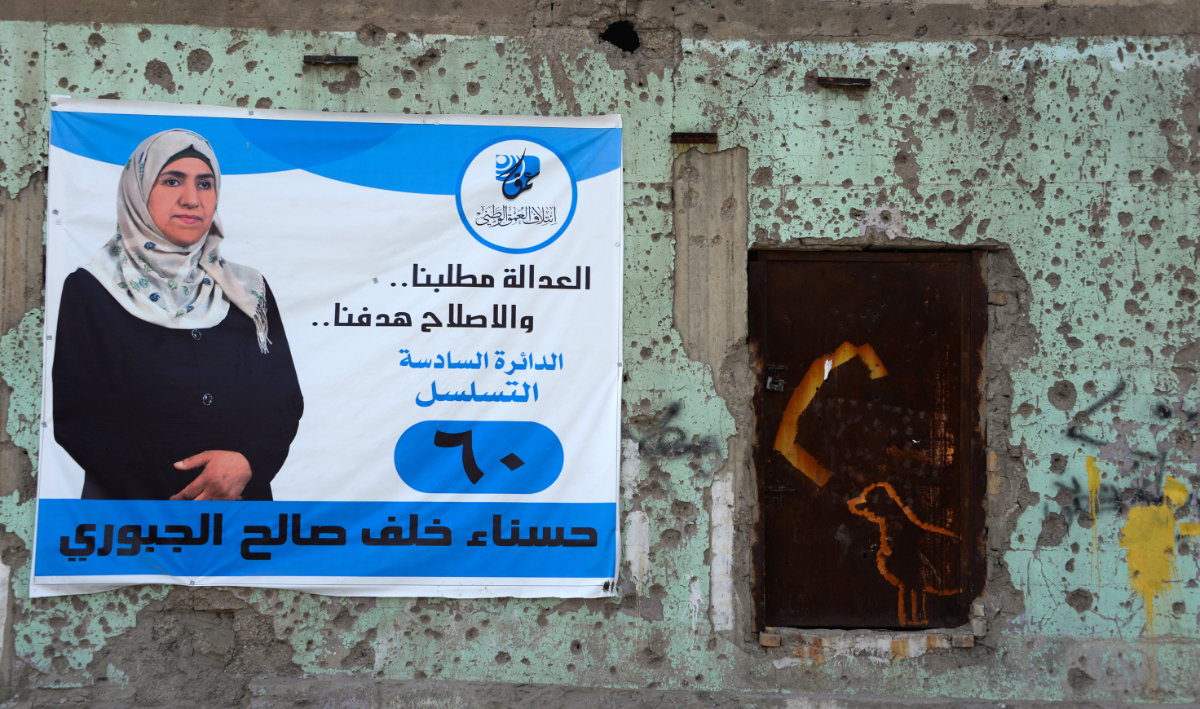
An electoral banner hangs on the wall of a damaged building in Iraq's second city of Mosul on Oct. 3, 2021, ahead of the upcoming parliamentary elections. (AFP)
“We do sometimes receive threats from certain political parties and some armed groups, but we always find a way to get around this and solve it,” Amer said. “Some of these threats include harsh language, not only for the club but also for the political opinions we have and our criticism of political parties.”
The independent candidates on the podium make a convincing case for a cleaner, fairer and more transparent system in Iraq, doing away with corruption, armed groups and foreign interference. But without a powerful party machinery to back them up, few stand a chance of entering parliament or effecting meaningful change once there.
Asil Al-Agha, 41, is one of the few female candidates standing for election in Mosul. A former member of Nineveh’s provincial council, running on an Iraq Renaissance and Peace Bloc ticket, Al-Agha has proven her mettle as a skilled campaigner, but is all too aware that she must operate within the confines of an imperfect system.
“A big proportion of people here are suffering from poverty and lack of jobs,” she told Arab News at her office near Mosul’s university campus. “Politicians will take advantage of this, promising jobs and money to buy votes.”
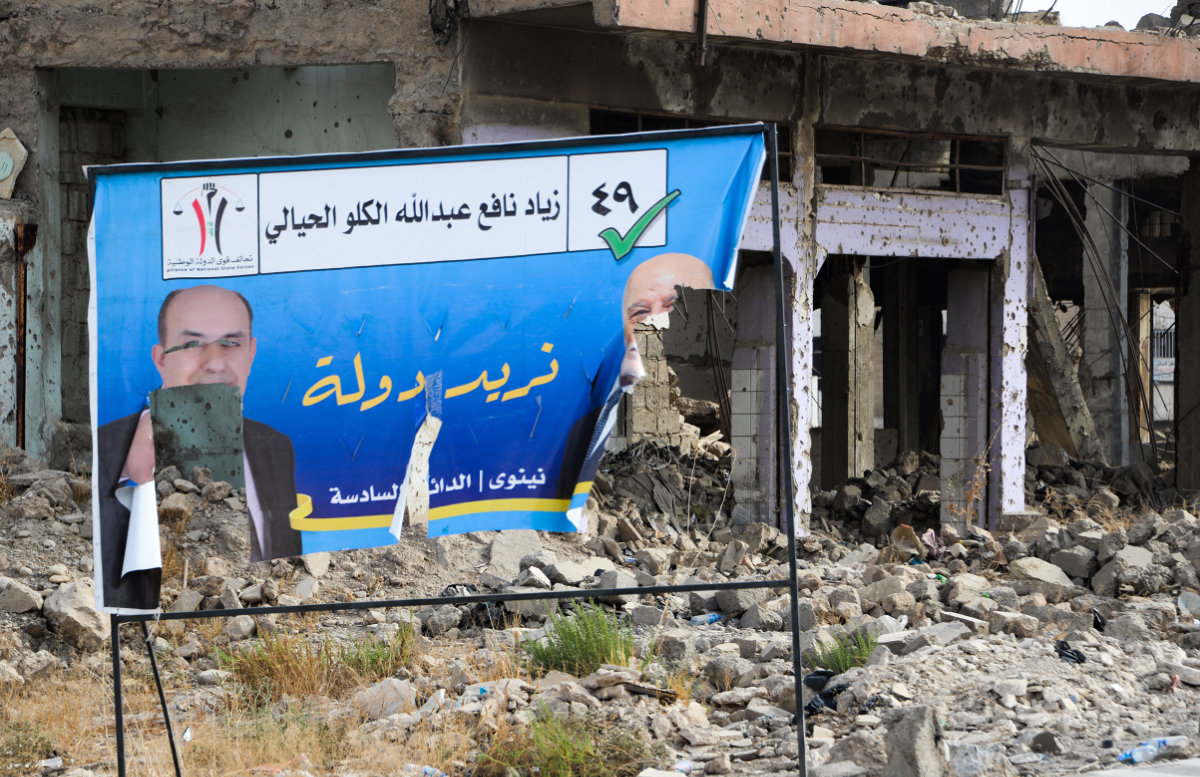
An electoral banner hangs on the wall of a damaged building in Iraq's second city of Mosul on October 3, 2021, ahead of the upcoming parliamentary elections.(AFP)
Al-Agha added: “One of the things that people suffer with here is bureaucratic red tape and corruption in state departments, where citizens are exploited and forced to pay bribes. To say nothing about health. We do not have government hospitals that provide the necessary treatment and good care.
“Even if I made it to Baghdad, it would be very difficult to work on these issues. I have to be strong and have a powerful political alliance where they can pressure others so we can get our rights. A lonely politician can’t get anything done alone. This is why I am running with a party, not independently.”
Iraq’s 2018 election, the first since the defeat of Daesh, saw the country’s lowest-ever turnout. Given the precarious health of Iraqi democracy, change from within may be the best and only hope for educated young Iraqis disillusioned by the failures of the October 2019 revolution.
“We believe that the only way to achieve change is to enter political work and participate in the elections to choose good people to run the government,” said Amer, closing the Khutwa Club event.
“This is the only available option.”
________________________
• Twitter: @meethak55 and @RobertPEdwards





